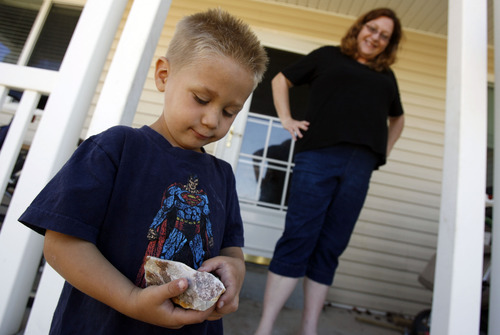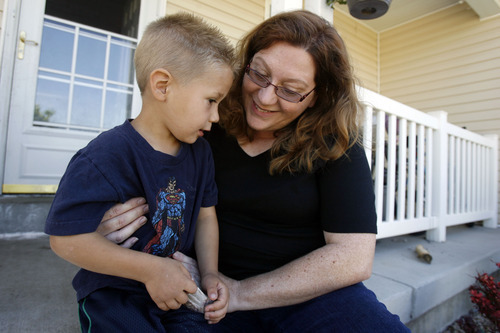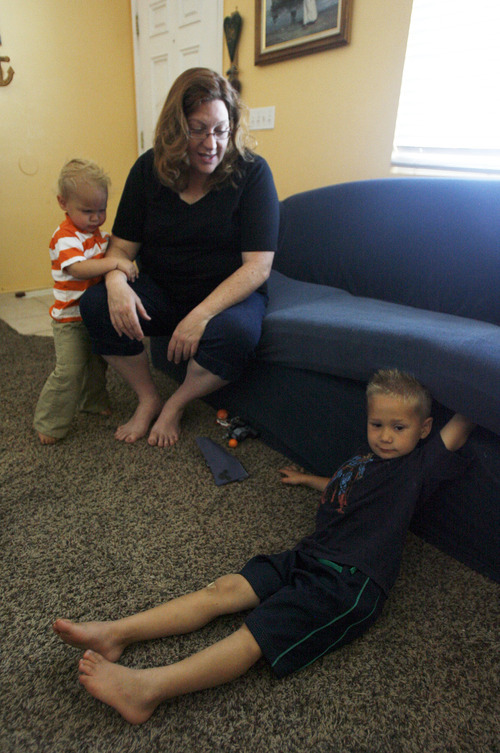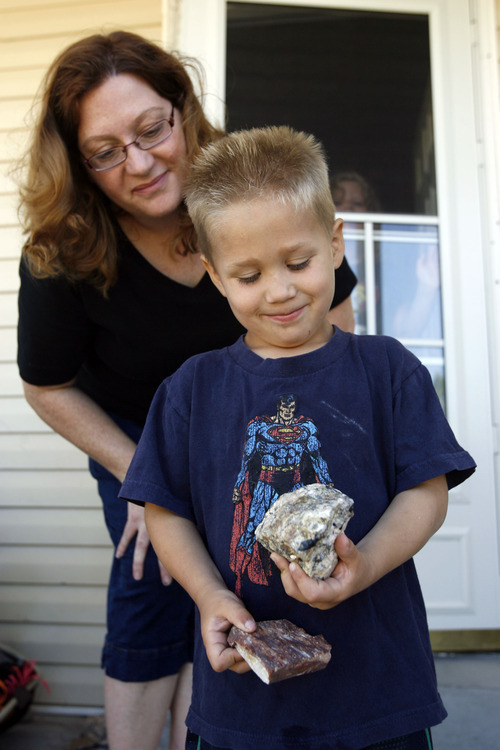This is an archived article that was published on sltrib.com in 2012, and information in the article may be outdated. It is provided only for personal research purposes and may not be reprinted.
Hoping to connect with tech-savvy pregnant women, Utah's baby protection program is rebooting.
With an updated Web page, a new Twitter feed and more focus on Facebook, officials hope to spread the word that women can anonymously leave their newborns at Utah hospitals without any legal consequences.
Intended to save children's lives, the Utah Newborn Safe Haven law has been in effect since 2001. The goal is to prevent women from abandoning infants in places such as trash cans and bathrooms, putting the child's life at risk.
Rep. Patrice Arent, D-Millcreek, sponsored the original law after hearing horror stories of infants left in unsafe places.
She recalled the media coverage of one young Utah woman who left her newborn in a drawer in her parents' home. The baby was found days later, dead.
"Most young women are not home reading the Utah Code," said Arent, explaining the need to continue to spread the word about the program.
Exactly how many babies have been saved in Utah is difficult to determine, because some women call the Safe Haven hotline at 1-866-458-0058 to learn about resources such as adoption, pregnancy health information and programs that provide financial support for keeping a baby.
But officials say at least one baby a year has been left at a Utah hospital since the law took effect in 2001.
Brenda Horrocks adopted her son Spencer after his mother placed him in the Safe Haven program. His birth mother allegedly used drugs and was struggling with mental health issues.
"I don't really see him as being unwanted," Horrocks said. "I think he was very much loved by his birth mother — she saw how her life went and wanted to give him happiness."
The 2-year-old is the fourth adopted child for the Eagle Mountain family. Spencer is thriving, Horrocks said. He made their family complete.
"When they told me about him, I knew he was mine," she said.
As a newborn four years ago, Seth joined the Caldwell family after his mother surrendered him at a Salt Lake Valley hospital. Maia Caldwell, his adoptive mother, says the young mom traveled to Utah from another state to give birth.
"The really cool thing after I got him is that everyone just adores him," she said. "I'm grateful he's undamaged and he's mine."
The adoptive mom laughs about Seth's cleverness, describing how he can unlock the freezer to get one of his beloved Popsicles.
"I've lost a full-term baby," said the Tooele mom, explaining how one of her biological children died during labor. "When you read about a baby in a Dumpster, you get sick."
Officials stress that women have no obligation to provide any information to the Safe Haven program. But they are welcome to give family medical history and pregnancy details, which may benefit the child and his or her adoptive family.
"When the newborn is dropped off, it's completely anonymous," Arent said. "That's what gives the panicking mother the ability to do this."
All the newborns benefit from an expedited process that quickly unites them with adoptive parents.
When the legislation was first contemplated more than a decade ago, some politicians resisted the idea. Critics argued that girls would get pregnant knowing they could give up their babies at hospitals, or that Utah would become the baby drop-off capital of the Intermountain West.
Neither appears to have happened.
Arent argued that the bill was an alternative to abortion.
While Utah was one of the first states to get a Safe Haven law, all 50 have some version of it now, she said.
"Very sadly, some girls still drop their babies in unsafe places such as Dumpsters or toilets," the legislator said. "We want to make sure there's an alternative."
Pregnancy help
O The Utah Newborn Safe Haven hotline 1-866-458-0058 is open 24 hours a day, every day of the week. For more information, go to http://www.utahsafehaven.org or follow them at twitter.com/UtahNewborn.









